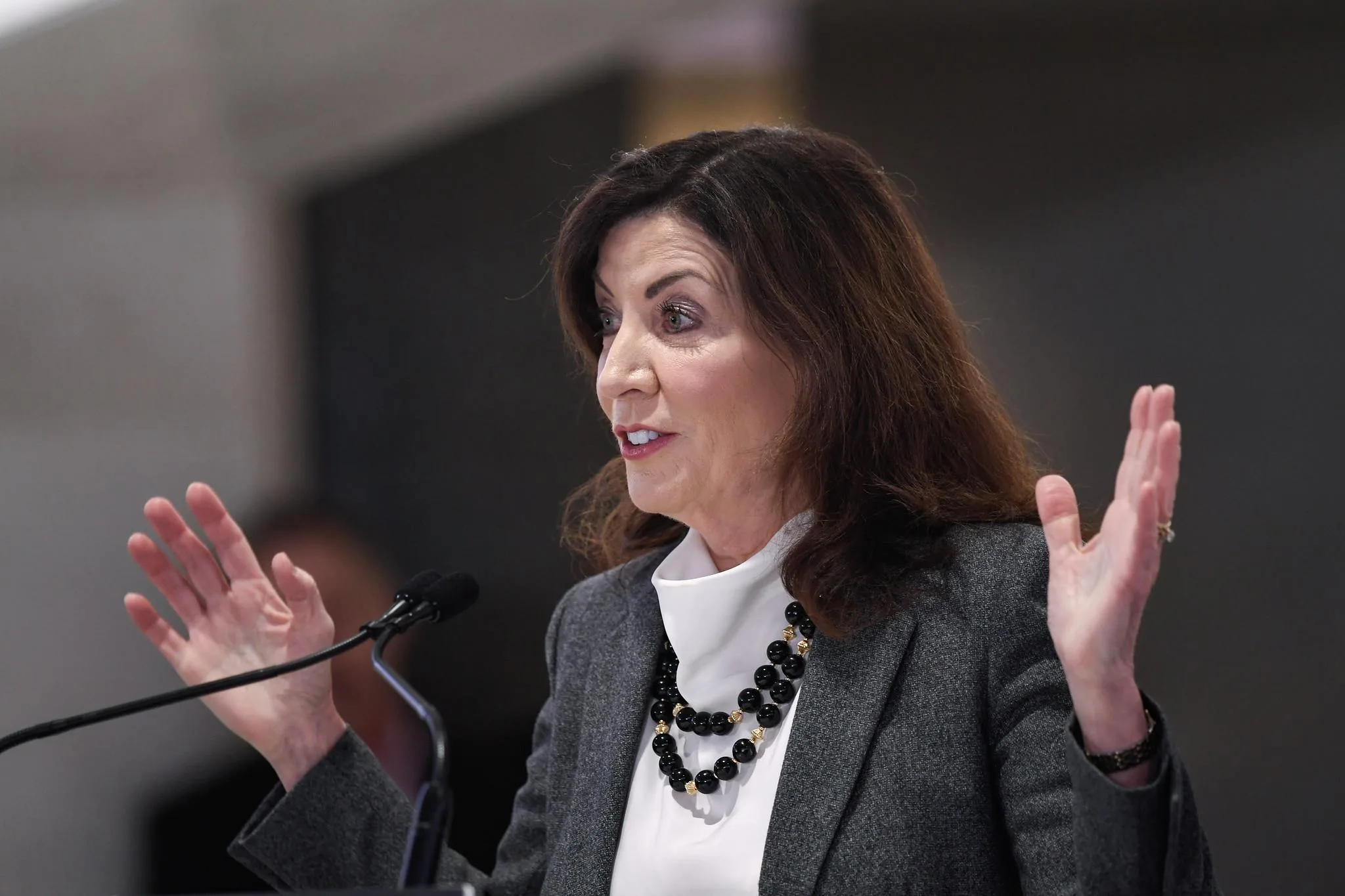Voices
Governor Hochul Leaves New York’s Parole System in Crisis
The governor’s broken promises have perpetuated an unacceptable status quo that denies incarcerated individuals a fair and transparent process for parole decisions.

With the legislative session recently concluding in New York, Gov. Kathy Hochul’s failure to fill critical vacancies on the state Board of Parole constitutes a grave abdication of her gubernatorial duties. Her inaction—leaving three vacancies unfilled and appointing only a single member to the board—followed past acknowledgments of chronic understaffing issues and vows to address them. Now, the governor’s broken promises risk triggering catastrophic ripple effects that could threaten the very foundation of our parole system.
At the heart of this crisis is the looming “zombie commissioner” scenario. Traditionally, the New York State Board of Parole is required to have 19 commissioners appointed to six-year terms, ensuring the stability and continuity crucial for a just and effective parole process. But the board currently only has 16 members. As of today, the terms of 11 commissioners have already technically expired, leaving the board in a state of bureaucratic paralysis as over two-thirds of its members face the looming threat of termination and potential non-reappointment.
Even in more stable times, the structure of the board lends itself to inertia. Commissioners draw an annual salary of $170,000, a generous sum that incentivizes them to simply go with the flow in hopes of maintaining their positions. This tendency stifles their ability to conduct fair and impartial evaluations, fundamentally undermining the integrity of the parole system. Making matters worse, some parole commissioners have extended their six-year terms into de facto lifetime appointments. Examples include Tyece Drake and Charles Davis, who have been in holdover status for over five years, and long-serving members like Joseph P. Crangle and Marc Coppola, who have served for 16 years and 12 years, respectively.
Hochul has had ample opportunity to inject fresh perspectives into the parole system by appointing new members and replacing holdovers. Advocates have called on her to prioritize individuals committed to rehabilitation, rather than punishment. Instead, she has perpetuated an unacceptable status quo that denies incarcerated individuals a fair and transparent process for parole decisions.
Data from the Vera Institute of Justice reveals the dire consequences of Hochul’s rubber-stamping: In the past few years, the release rate for elderly incarcerated individuals has significantly plummeted, despite research showing this population has the lowest recidivism rates and can safely return to the community. Alarmingly, 90 percent of parole board denials appear to be based on the crime for which the individual has already been sentenced. This implies parole considerations are a forgone conclusion and that the board has abandoned its role as an independent body dedicated to evaluating the individual merits of each case. Numerous reports also confirm that Black and brown individuals are disproportionately denied parole, a disparity that only further underscores the need for action.
The parole board’s troubling ineffectiveness continues to exact a jarring human cost. State Department of Corrections data from 2021 reveals that incarcerated individuals are dying in prison at an average age of 58, with fatalities occurring every three days. In 2020, only 1.7 percent of medical parole requests were granted, condemning many terminally ill people to die behind bars. The intolerably slow pace of parole has only exacerbated an aging crisis in New York prisons, with over 25 percent of the incarcerated population now over the age of 50. State officials have repeatedly highlighted these issues and legislators have sought to address them with the Elder Parole Bill and the Fair and Timely Parole Bill. Hochul has yet to publicly support either measure, and only the latter made it out of committee this session.
The board’s perceived unfairness has also taken an immense psychological toll on incarcerated individuals, causing some to lose faith in the system entirely. The Parole Preparation Project has worked with clients who have responded by skipping their parole interviews. We recently had to persuade a man who has been incarcerated for nearly a half-century to attend a hearing after seven years of refusal. Others, overwhelmed by despair, have tragically taken their own lives. In one case, a 74-year-old man suffered a fatal stroke during his 14th parole hearing, just moments after he was finally granted parole. He left the virtual session to use the bathroom and collapsed, perhaps overwhelmed by the news that he’d finally made it.
While there has been much talk about data showing New York has halved its prison population over the last 11 years, the positive framing of this narrative ignores that our prison budget has surged to over $3 billion, placing New York among the top three state corrections spenders. Despite this outpouring of resources, New York’s recidivism rate has stubbornly hovered around 40 percent since 1996, while our state parole system receives a dismal D- grade for fairness.
With thousands of lives hanging in the balance, Governor Hochul still has the power to take immediate, decisive action to overhaul the dysfunctional parole board. By swiftly filling vacant positions, replacing expired-term commissioners, and appointing new members committed to rehabilitation and fairness, she can transform a misguided system. She can also throw her support behind the Elder Parole and Fair and Timely Parole Bills, offering hope to aging and rehabilitated individuals who can safely return to the community.
Every day of inaction perpetuates harm and erodes public trust. We cannot afford to wait. The future of fair parole in New York depends on the governor’s leadership today.
Anthony Dixon is Deputy Director of the Parole Preparation Project, a nonprofit organization dedicated to providing advocacy and critical support for people serving life sentences and those who have returned home from New York prisons.
